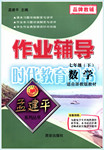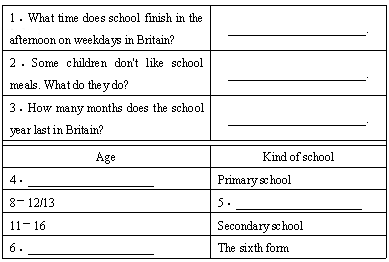题目内容
Children in the USA like K Day very much..K is for kite. March 7 is the day.On that day, lots of children go out in the open air. They take their kites with them. Some kites are very big. Others are small. They are in different colours. Every kite has a long string(绳). To get the kites up, the children begin to run. They let out the string from the ball in their hands. Now the kites are flying in the air. How nice they look!
Now all of the kites are high up in the air. Some are higher than(比) others. The one like a bird is the highest(最高). But what’s wrong? It’s flying away! The string is broken.
Another kite gets away. And more kites fly. But the children are running after them. They want to get them back. People are watching them and laughing.
( )6.K is for_________
A.kind B.kilometer C.kites D.knife
( )7.K Day is on _______.
A.May 7 B.March 7 C.April 7 D.April 1
( )8.To get his kite up, a child must ______
A.run and run B. walk and let out the string from the ball in his hand
B.walk and walk D.run and let out the string from the ballin his hand
( )9.The kite like a bird is _______ of all.
A.high B.higher C.the highest D.tall
( )10.The string of the kite like a bird is______
A.long B.short C.broken D.very good
CBDCC

 作业辅导系列答案
作业辅导系列答案
|
TV PROGRAMMES |
|
|
Channel 1 |
Channel 2 |
|
18:00 Around China 18:30 Children’s programme 19:00 News 19:30 Weather report 19:40 Around the world 20:10 TV play: Sisters 21:00 English for today 21:15 Popular music 21:55 Talk show |
17:45 Computers today 18:10 Foreign arts 18:30 “Modern English” 19:00 Animal world 19:25 In Asia 20:20 Sports 21:00 Sports player: Yao Ming 21:45 English news 22:05 On TV next week |
1. If you want to watch a football game, the best programme for you would be ______.
|
A.TV play |
B.Sports |
C.TV play: Yao Ming |
D.Talk show |
2. The programme of ___ will let you know much about western countries.
|
A.Sisters |
B.Around China |
|
C.Around the world |
D.In Asia |
3. If you want to know something about tigers, elephants and monkeys, the best programme for you is
|
A.at 19:40 on Channel 1 |
B.at 19:00 on Channel 2 |
|
C.at 18:30 on Channel 2 |
D.at 21:15 on Channel 1 |
4. “Modern English”is a programme that ____.
|
A.lets you know something about classroom |
|
B.tells you something about students |
|
C.lets you know something about school life |
|
D.teacher you English |
5. The programme at the end of Channel 2 means ____ on TV next week.
|
A.news |
B.programmes |
C.people |
D.places |


 office, so they don’t
have much time to spend with their children. As time 2. by, they both feel that they don’t have the 3. topics to talk about. I think
parents should spend more time with
4. , get to
know them and understand them. And 5. children, show your feelings to
your parents. They really love you. So tell
them your thoughts. In this way, you can have a better
understanding of each other.
office, so they don’t
have much time to spend with their children. As time 2. by, they both feel that they don’t have the 3. topics to talk about. I think
parents should spend more time with
4. , get to
know them and understand them. And 5. children, show your feelings to
your parents. They really love you. So tell
them your thoughts. In this way, you can have a better
understanding of each other.